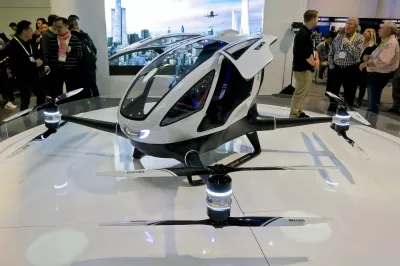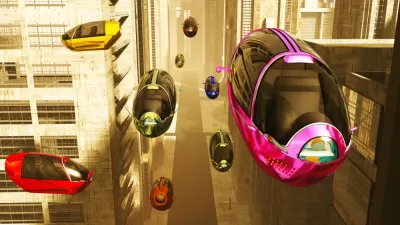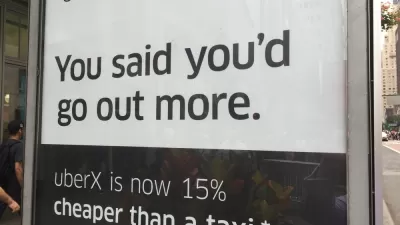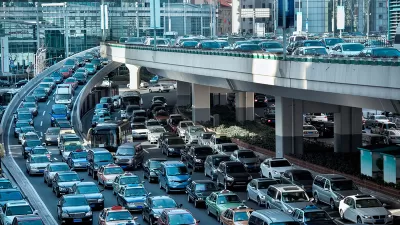A ride-hailing company that lost $5.2 billion in one quarter wants to launch a flying taxi service. According to this op-ed, cities should concentrate on expanding existing public transit systems instead of wasting time and money on pipe dreams.

Matt Caywood, CEO and co-founder of TransitScreen, writes an opinion piece to critique the idea of flying Ubers, taking to the skies to save us all from congestion.
The idea of flying Ubers is "disconnected from reality," argues Caywood. "The price estimate is nearly $6 per mile, making a 20-mile trip from the Upper East Side to JFK cost around $120, compared to the current $7.75 combo of the subway and AirTrain. Can someone make money providing helicopter service to the rich? Sure. Is it the mass market a public company like Uber needs? No."
The news of Uber Elevate, also called Uber Air, first hit the Planetizen newswire in May 2018. The technology that would fly these Ubers is called VTOL, signifying Vertical Takeoff and Landing. The company is already making plans to build its first skyport facility in Frisco, Texas. Caywood has a bone to pick with people who are making the case that flying Ubers might somehow be a sustainable mode of transportation.
However, left unsaid is how people would arrive at the skyport in order to take the taxis. The first skyport is slated to be built at Frisco Station outside Dallas, a greenfield mixed-use development with zero access to public transportation. That means the only people who could use it either already live there or have to drive — or, in what is likely the planned scenario, take an Uber. The environmental impact as compared to a subway carrying hundreds of people running all the way to the airport, then, is still greater.
Caywood also notes that inability of a flying taxi to accommodate may users at once: "Like hyperloop, in any realistic scenario, it only adds a tiny percentage of capacity to the network, but not enough to make a difference."
FULL STORY: Op-Ed: What Flying Ubers Mean For the Future

Planetizen Federal Action Tracker
A weekly monitor of how Trump’s orders and actions are impacting planners and planning in America.

Maui's Vacation Rental Debate Turns Ugly
Verbal attacks, misinformation campaigns and fistfights plague a high-stakes debate to convert thousands of vacation rentals into long-term housing.

Restaurant Patios Were a Pandemic Win — Why Were They so Hard to Keep?
Social distancing requirements and changes in travel patterns prompted cities to pilot new uses for street and sidewalk space. Then it got complicated.

In California Battle of Housing vs. Environment, Housing Just Won
A new state law significantly limits the power of CEQA, an environmental review law that served as a powerful tool for blocking new development.

Boulder Eliminates Parking Minimums Citywide
Officials estimate the cost of building a single underground parking space at up to $100,000.

Orange County, Florida Adopts Largest US “Sprawl Repair” Code
The ‘Orange Code’ seeks to rectify decades of sprawl-inducing, car-oriented development.
Urban Design for Planners 1: Software Tools
This six-course series explores essential urban design concepts using open source software and equips planners with the tools they need to participate fully in the urban design process.
Planning for Universal Design
Learn the tools for implementing Universal Design in planning regulations.
Heyer Gruel & Associates PA
JM Goldson LLC
Custer County Colorado
City of Camden Redevelopment Agency
City of Astoria
Transportation Research & Education Center (TREC) at Portland State University
Jefferson Parish Government
Camden Redevelopment Agency
City of Claremont





























